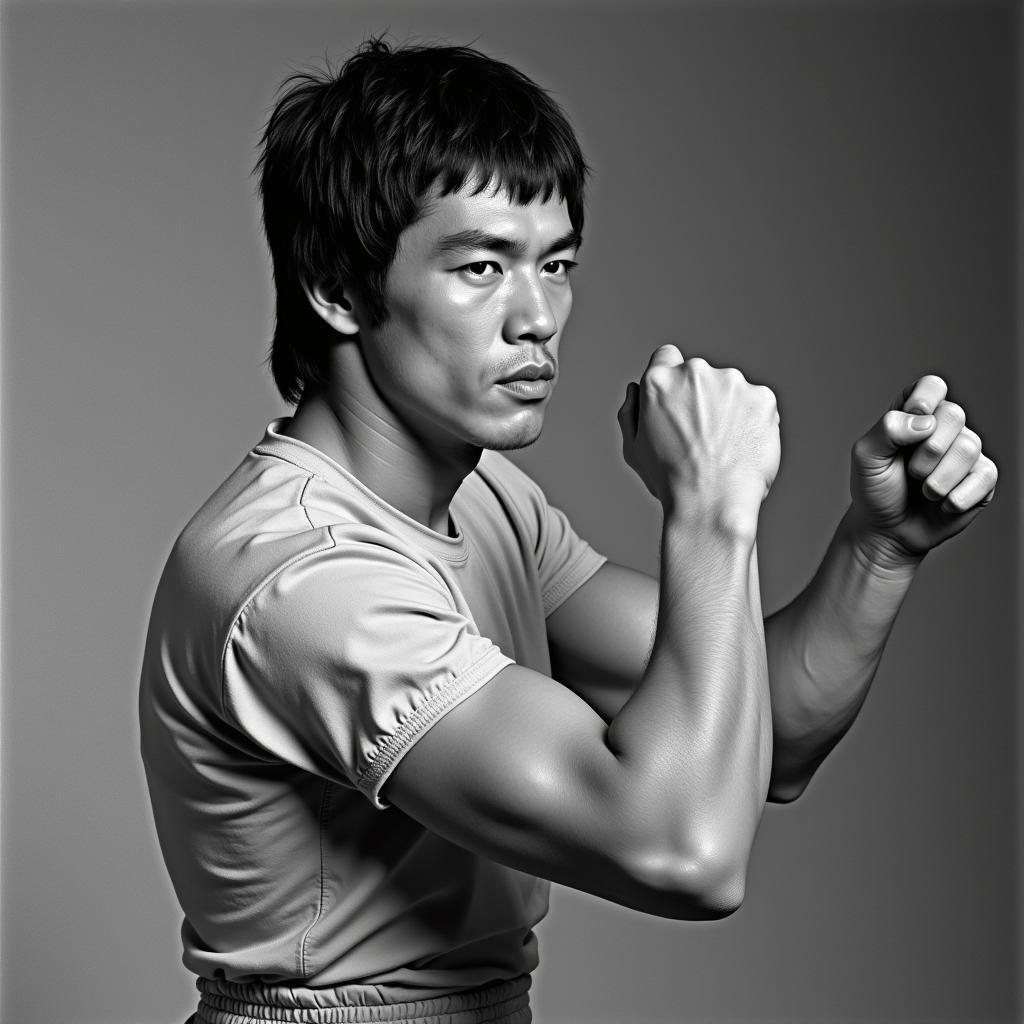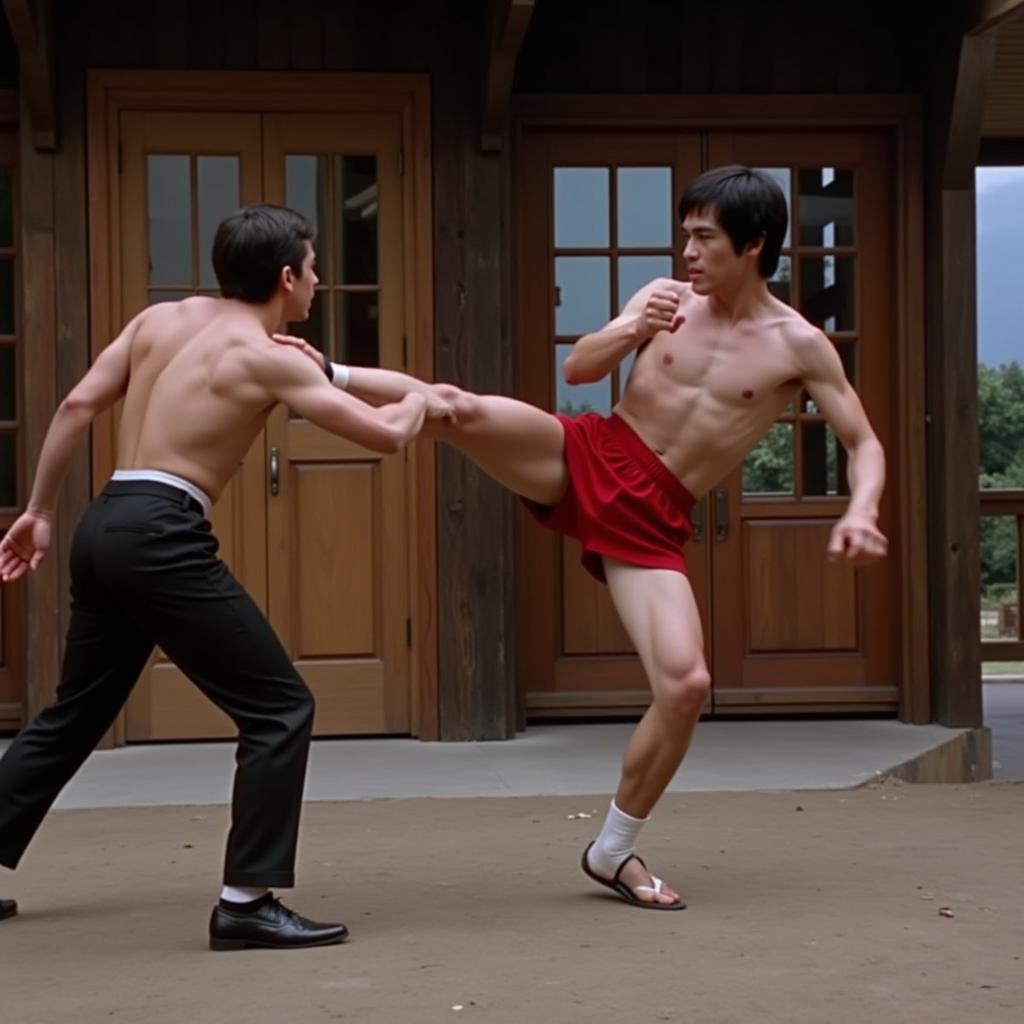The portrayal of Bruce Lee in Quentin Tarantino’s “Once Upon a Time in Hollywood” sparked outrage among many Bruce Lee fans, who found the depiction disrespectful and inaccurate. The controversy stemmed from the film’s comedic portrayal of Lee as an arrogant and boastful martial artist, ultimately losing a fight to Brad Pitt’s fictional stuntman character, Cliff Booth.
The Roots of the Controversy: Why Were Fans Offended?
The primary reason for the backlash lies in the stark contrast between Tarantino’s Lee and the real-life martial arts icon. Bruce Lee is globally revered for his philosophy, skill, and contribution to martial arts cinema. He transcended cultural barriers and became a symbol of strength, discipline, and self-expression.
 Bruce Lee's legacy as a martial arts icon
Bruce Lee's legacy as a martial arts icon
Fans argue that the film diminishes Lee’s legacy by portraying him as arrogant and disrespectful. In the film, Lee boasts about being able to “cripple” Muhammad Ali, a claim that contradicts Lee’s known respect for the boxing legend. This perceived misrepresentation of Lee’s character felt like a disservice to his memory and the values he embodied.
Tarantino’s Artistic License vs. Historical Accuracy
Tarantino defended his portrayal of Lee as an exaggeration for comedic effect, a stylistic choice he frequently employs in his films. He argued that the film operates within a heightened reality, where characters and events are not bound by strict historical accuracy.
However, critics argue that taking such liberties with a real-life figure like Bruce Lee, especially one who holds such cultural significance, crosses a line. They believe that even within a fictionalized setting, depicting Lee in a negative light, particularly losing a fight to a fictional character, disrespects his legacy and feeds into harmful stereotypes.
 Bruce Lee in a movie fight scene
Bruce Lee in a movie fight scene
The Importance of Cultural Sensitivity
The controversy surrounding Bruce Lee’s portrayal in “Once Upon a Time in Hollywood” highlights the importance of cultural sensitivity in filmmaking. While artistic license allows for creative expression, it should not come at the expense of misrepresenting or disrespecting real individuals, especially those who hold cultural significance.
The backlash from Bruce Lee’s fans serves as a reminder that representations matter and that filmmakers have a responsibility to be mindful of the impact their creative choices can have on audiences and the legacies of the individuals they portray.
Conclusion: Legacy vs. Interpretation
The debate over Bruce Lee’s portrayal in “Once Upon a Time in Hollywood” is ultimately a complex conversation about artistic license, historical accuracy, and cultural sensitivity. While Tarantino defended his creative choices, the backlash highlights the importance of approaching real-life figures with respect and understanding, especially those who continue to inspire and hold cultural significance for many. It serves as a reminder that even within the realm of fiction, the portrayal of real individuals carries weight and can have a lasting impact on how they are perceived and remembered.


